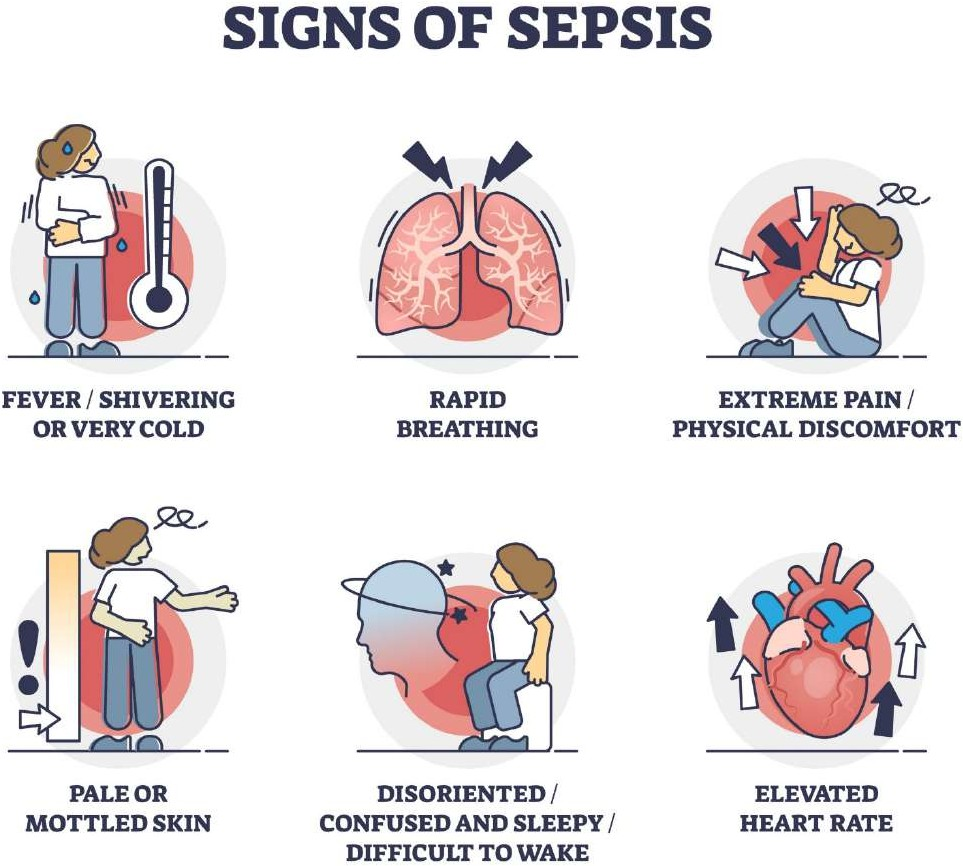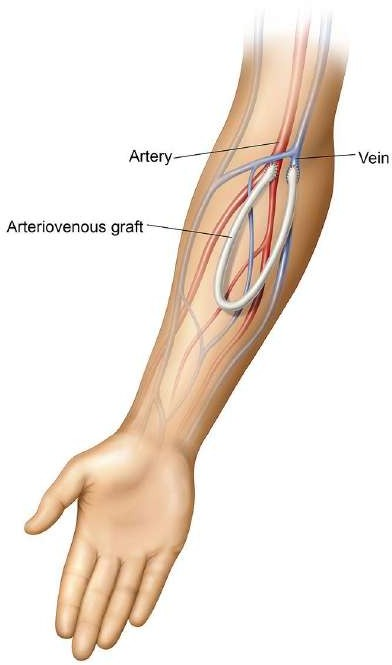A nurse is providing care to a client who has peritonitis. Which of the following conditions is the highest priority for
the nurse to monitor?
Heart atack
Diabetes
Respiratory failure
Sepsis
The Correct Answer is D
Choice A reason: While a heart atack is a serious condition, it is not directly related to peritonitis. Peritonitis can lead to systemic infection, which may indirectly affect the heart, but it is not the primary concern in the immediate care of peritonitis.
Choice B reason: Diabetes is a chronic condition that requires ongoing management. However, it is not the most immediate threat when a client is diagnosed with peritonitis. The nurse should continue to monitor blood glucose levels as part of routine care.
Choice C reason: Respiratory failure can be a complication of peritonitis if the infection spreads and affects other systems. However, the primary concern with peritonitis is the potential for the infection to lead to sepsis.
Choice D reason: Sepsis is a life-threatening condition that can occur as a complication of peritonitis. It happens when the body's response to infection causes injury to its own tissues and organs. Monitoring for signs of sepsis is crucial because early intervention can be lifesaving.

Nursing Test Bank
Naxlex Comprehensive Predictor Exams
Related Questions
Correct Answer is D
Explanation
Choice A reason: Measuring blood pressure di?erences is not a method to assess the patency of an AV graft.
Choice B reason: Checking pulses is important but does not confirm the patency of the AV graft.
Choice C reason: Using a Doppler stethoscope at the antecubital fossa is not the standard method for assessing AV graft patency.
Choice D reason: Auscultating for a bruit at the site of the AV graft is a common and non-invasive way to assess for patency.

Correct Answer is D
Explanation
Choice A reason: Being a breast cancer survivor is not an absolute contraindication for kidney transplant. Patients with a history of malignancy should be successfully treated before proceeding with transplantation, and most candidates with a history of cancer are advised to wait a period of time between successful treatment and transplantation.
Choice B reason: Having a pacemaker is not a contraindication for kidney transplant. Patients with cardiac devices can undergo transplantation if their cardiac condition is stable and well-managed.
Choice C reason: Age alone, such as being 65 years of age, is not an absolute contraindication for kidney transplant. Many transplant centers perform successful kidney transplants in older adults, considering their overall health and potential benefits from the procedure.
Choice D reason: Active drug or alcohol addiction is considered a contraindication for kidney transplantation. Patients with addiction should be in an established recovery program and stable for a minimum of one year before being considered for transplant.
Whether you are a student looking to ace your exams or a practicing nurse seeking to enhance your expertise , our nursing education contents will empower you with the confidence and competence to make a difference in the lives of patients and become a respected leader in the healthcare field.
Visit Naxlex, invest in your future and unlock endless possibilities with our unparalleled nursing education contents today
Report Wrong Answer on the Current Question
Do you disagree with the answer? If yes, what is your expected answer? Explain.
Kindly be descriptive with the issue you are facing.
